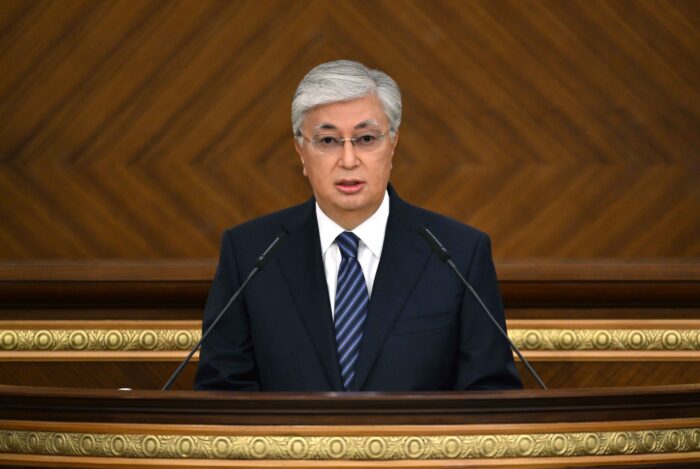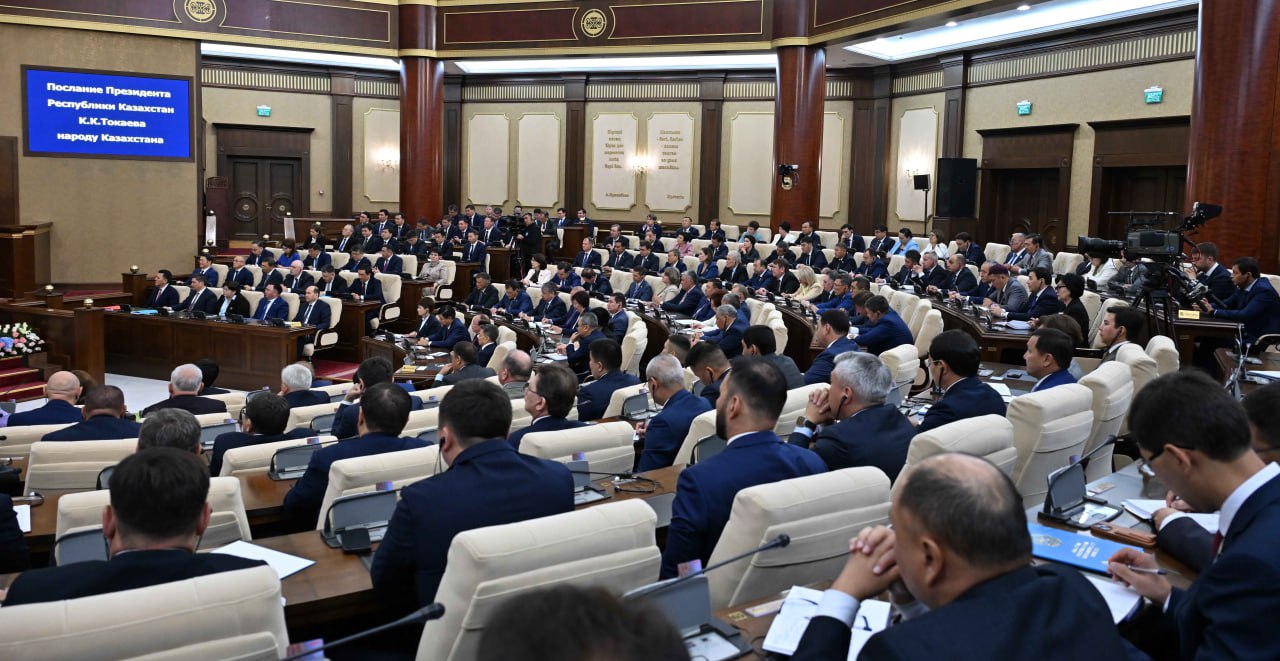ASTANA — President Kassym-Jomart Tokayev announced that companies of the Samruk Kazyna Sovereign Wealth Fund will undertake initial public offerings (IPOs) starting in 2024. The move is part of a broader strategy to reduce the government’s role in the economy, as stated in his state-of-the-nation address on Sept. 1.

President Tokayev delivered his state-of-the-nation address on Sept. 1. Photo credit: Akorda.
“The aim is to speed up the process of privatization and public IPOs. The ultimate goal is to improve transparency and asset management efficiency,” said Tokayev. He has directed the government to initiate the privatization of all non-core assets and launch public IPOs for companies under the Samruk Kazyna Fund, starting in 2024.
Air Astana, where the fund owns a 51% share, and QazaqGaz, a national company entirely owned by Samruk Kazyna, will be among the first to undertake IPOs next year.
Support for medium-sized businesses
President Tokayev urged the government to hasten the growth of medium-sized enterprises.

President Tokayev urged the government to hasten the growth of medium-sized enterprises. Photo credit: Akorda.
“The government must eliminate obstacles holding back medium-sized businesses. Many medium-sized enterprises remain fragmented to stay in the ‘comfortable’ small business segment,” said the President. He instructed the government to modify legislation to encourage the consolidation of small businesses and prepare specific plans to help them improve productivity by two to three times.
Kazakhstan’s Business Roadmap and the Economy of Simple Things programs will merge into a single program focusing on small and medium-sized businesses. Support will be contingent on the technological complexity of the production and the type of business.
“Operational efficiency in state support is crucial. Hence, the need for a structural transformation and large-scale digitization of Baiterek holding,” said Tokayev.
Tokayev underscored the need for a systematic approach to export promotion. He proposed creating a fully operational export promotion institution, building upon KazakhExport, the country’s existing export insurance company.
Fair competition
He also emphasized the need to improve the business environment, stating, “Successful entrepreneurship is only possible with the development of competition.”
“Currently, a few major players dominate several core industries, leading to market distortions,” said Tokayev. “Both the government and the Agency for the Protection and Development of Competition should take measures to demonopolize key markets. Although we have established favorable conditions for commodity markets, they have not sufficiently promoted organized trade.”
President Tokayev noted that weak regulatory practices have led to the emergence of “pocket” commodities exchanges. These have become platforms that undermine competition, sidestep standard procurement processes in favor of imports, and provide ineffective mediation services.
“Regulatory frameworks must be strengthened to eliminate these deficiencies fully,” he added. “Additionally, it’s crucial to ensure that local producers gain complete access to modern trading instruments. Operating solely within the national trading system is not an option. Collaborative efforts with the business sector are essential to establish a robust regional commodity exchange.”
To address these issues, President Tokayev instructed the government to amend existing laws, thereby bolstering the effectiveness of the antimonopoly authority.
Favorable business climate
President Tokayev underscored the necessity of fostering a business-friendly climate within the country.
“The government and the business sector must maintain a constructive dialogue,” President Tokayev stated. “In our current transitional phase, it’s evident that state institutions have room for improvement, occasionally exhibiting both shortcomings and overreach. A critical step forward would be the decriminalization of economic crimes.”
He also urged an end to the harassment of entrepreneurs by law enforcement agencies. “Despite existing sanctions, such practices continue, according to my information. While it’s possible that this information is sometimes deliberately misleading, the issue is too significant to be ignored,” he added.
The President highlighted that specific areas such as support for local entrepreneurship, easing regulatory burdens, and bolstering competition warrant focused discussions.
“Therefore, I will soon hold a special meeting with members of the domestic business community,” he concluded.
